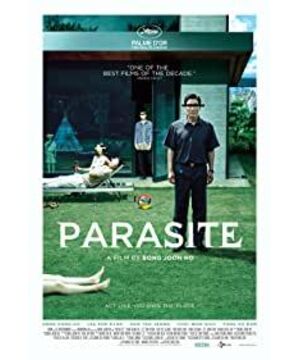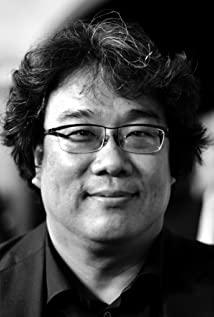Korean localization of Ripley-style stories
In 1955, American female writer Patricia Highsmith published her new book "The Genius Ripley", which immediately caused a sensation. Readers found that this novel and similar works seem to be different. The protagonist Tom Ripley is young and intelligent, has an amazing memory and imitation, and at the same time longs to get rid of his own class and poverty. By chance, he glimpses the life of the rich people of the same age, because of desire and vanity, He started his own dark plan, even at the expense of murdering others.
The subsequent series of works "Underground Ripley", "Ripley's Game", "Tracking Ripley" and "Water Queer Ripley" also follow the same routine. Ripley can lie without changing his face, and calmly Lies rounded up the past, wandering between light and darkness, and never encountered a detective like Sherlock Holmes to make things difficult for him. The concepts presented in this series of stories are undoubtedly dark and very advanced. When many people are still addicted to the story of the great detective solving the case, the author Highsmith has provided a new perspective on the crime theme.
"Genius Ripley" was later adapted into a movie. Whether watching the movie or reading it, many readers would easily put themselves into Ripley's perspective, and even sympathized with him and worried about him. The reason can be imagined. , No one is 100% satisfied with their life, and when we are not satisfied with ourselves, we always want to be someone else.
In my personal impression, there are not a few movies that use the first perspective of the perpetrator as the model of "camouflage identity" → "close to the target" → "open the crime" → "cover up the crime" , and it can also be regarded as a model of Hollywood movies. Well, the Korean movie "Parasite" is a Korean localization of Ripley's story.
The family of four are all unemployed and live in the basement. By chance, the son became an English tutor for the rich, and then the family worked step by step. The daughter became an artist teacher, the father became a driver, and the mother became a maid. All are unemployed. By the time everyone is employed, life seems to be improving, and the family can occupy the mansion while the rich family is out, drinking, chatting and dreaming. Everything seems to be going well, until the former maid returns to the mansion and opens the basement that no one knows about. the secret door...
"Parasite" director Feng Junhao, his past works include "Kidnapping the Door Dog", "No Blood and No Tears", "Memories of Murder", "The Monster of the Han River", "Snowpiercer", "Okko" and so on. In my personal opinion, most of his works have the shadow of Hollywood movies. For example, "Memories of Murder" is quite similar to "Seven Deadly Sins", "Snowpiercer", "The Monster of the Han River" and "Okko" are also typical Hollywood models, but the Junho's greatness lies in the Korean localization of Hollywood, combining the environmental and social issues in Korea, giving the Hollywood model new vitality and more oriental connotations.
Not only Feng Junhao, this may also be the direction and thinking of Korean film development.
The advantage of Korean films is that there are a large number of entertainment industry practitioners and the freedom of the industry environment. The disadvantage is that the cultural connotation is relatively weak. Because of the obvious disadvantages, Korean films have never been afraid to borrow advanced film concepts and concepts. Just like the early Hong Kong films, and then It also gives full play to its advantages, dares to start with various themes, pays attention to the problems in social development, discusses the good and evil of human nature, and combines the fate of the little people with the contradictions of national history.
In 1998, the film rating system replaced the censorship system. Until today, Korean films have successfully created a successful local film road, and the performance is that every year, there are so many shocking Korean films that Chinese fans are on the Internet. Go on a frantic search and download.
Straightforwardness and metaphor
In May of this year, "Parasite" won the Palme d'Or at the 72nd Cannes Film Festival, which is also the first time a Korean film has won the Palme d'Or. Bong Joon-ho then said:
"This year marks the 100th anniversary of Korean films, and Cannes gave me a great gift. Parasite is a continuation of my previous films, all genre films. I heard yesterday that this film is a typical Bong Joon Ho style, I Very happy with this statement!"
At the 71st Cannes Film Festival in 2018, Korean director Lee Chang-dong's "Burning" received a lot of attention, but the film failed in the end. (The 71st Palme d'Or is the movie "The Thief Family")
As a commercial type film, "Parasite" has excellent texture and completion, and the lines and details are very good. Except for the fact that the father and son wrote a letter to the dialogue at the end, the film fell into a little promiscuous love. There are almost no major problems, but The biggest "problem" is that the film is too explicit.
Perhaps this is not a problem with the film, but the way of expression. There is no good or bad way of expression. What is good or bad is whether the way of expression can make the audience feel more when expressing the content.
The theme of "Parasite" is: class and rich and poor. The performance on the lines is:
"It's not rich but kind, but rich and kind, understand? If I had that money, I'd be kind too, super kind."
"Money is the iron. It irons everything, and irons all the folds."
"As long as the lights are turned on in the middle of the night, all the cockroaches will hide."
"Life can't go according to plan. Look here, do these people plan to sleep in the gym together?"
...
It seems that the impoverished family of four can always become critics at a certain moment, saying a lot of philosophical words, as if they are afraid that the audience will not understand, the film is using their mouths to criticize social reality. And how did the family fare in the movie? Smart, cautious, bold, and thoughtful, such a family will be reduced to unemployment, which is quite unconvincing to be honest, but this is a character setting and cannot be criticized too much.
Compared with last year's Li Cangdong's film "Burning", "Parasite" is like a naked but lacking beauty. It's not impossible to give you what you want to see and express what you want to express. On the contrary, it fits the positioning of a commercial film very well. It’s just that in this process, a lot of fun and beauty are lost, and even the images representing metaphors in the film are very straightforward.
Stone : The stone given by a friend symbolizes good luck. After getting the stone, the family's situation has indeed improved. However, when the flood came, the stone floated from the water. The stone is fake, and good luck is also fake. The son's hands became a murder tool, and the ultimate victim was the son himself.
Taste : "Taste" is mentioned more than once in the movie. The rich man and the son of the protagonist both mentioned the taste of this family of four. Sometimes you can smell this taste when you squeeze the subway. It can't be more clear. The rich can Smell the poor.
Cheap women's underwear : it is a tool left by her daughter in the car to squeeze the former driver, and it is also the reason why the rich man fires the driver, but in the back, it has become a sexual arousing object for the rich man and his wife, no doubt It's mocking the hypocrisy of the rich.
But the advantage of the film is also its straightforwardness and boldness. The relationship between the rich and the poor is opposite and coexisting, like a contradiction in the philosophical sense. The rich pay salaries and the poor provide services, but there are fewer rich and more poor, and the poor want to get jobs, so they play tricks on each other and even draw swords against each other. The film not only shows the relationship between the rich and the poor, but is not afraid to show it. The contradiction between the poor and the poor, everyone does what they do is in line with their own identity, let it be, but the final outcome is a tragedy, the poor hate each other, and the rich are not immune.
The most interesting plot of the whole movie is that the person who has been living in the basement and came out to steal food in the middle of the night wants to thank the rich man before he dies, smiles at him, but wants to kill the poor family of four, this feeling. Much like a truth I've heard in the past, you don't necessarily envy Bill Gates or Jack Ma, but you might envy your neighbors who earn more than you.
Parasites sound like a small, pitiful, inconspicuous, and non-existent creature, but in nature, parasites are often very lethal , and some parasites can even control the brains of creatures and lead them to commit suicide. "Parasite" seems to be describing a certain group or a certain type of people, but it also seems to be a real metaphor for a social problem, such as the large gap between the rich and the poor.
Some people think the movie "Parasite" is not good enough to win the Palme d'Or, which looks more like it is given to the entire Korean film industry (I personally tend to think so), but the Palme d'Or is indeed given. "Parasite", there is no point in continuing to explore here.
Korean Films and the Rating System
The whole movie turns into a promiscuous tone after the Meadow Murder, which is cumbersome, and logically, the passage of the father using Morse code to pass the message to the son is a bit far-fetched. I always feel that the film can completely change its expression at the end, and has the potential to become better.
In my opinion, "Parasite" is not as good as Lee Changdong's "Burning" as a whole (personal preference), and it didn't even meet my personal expectations, but it is still a first-class Korean commercial film. In addition, it seems that most Korean movies also have the problem of promiscuity, excessive emotional catharsis and expression.
But this is only a very small problem. In the foreseeable future, thanks to the film rating system, Korean films will continue to explode with strong vitality and creativity.
Korean films have also gone through a rough period and a strict censorship system. Until 1988, the Korean government decided to change the second trial to the first trial, slightly relaxing the expression limit. In 1998, the Korean film rating system was officially introduced, stipulating that films are divided into 5 grades: all people, over 12 years old, over 15 years old, over 18 years old can watch and restricted screening.
All of a sudden, all the films that were explicitly banned in the past have become subjects that can be used for creation. Whether it is politics, violence, eroticism, etc., there are almost no restrictions on the content, and there is no situation where inferior films are rushed. On the contrary, it has promoted the competition of local films and realized the survival of the fittest, perhaps because everyone can no longer use the excuse of "can't make good films because of subject matter restrictions".
So doesn't censorship make good movies? Of course not, but the probability of a good movie appearing is relatively much less, and it will not be unable to be released due to various reasons. The freedom of creation will inevitably bring more creativity and expression techniques, and less restrictions will bring more vitality. .
In short, "Parasite" is not the best Korean movie, but Korean movies will continue to develop and improve, and I am also very much looking forward to the shock and surprise brought by Korean movies.
-END-
View more about Parasite reviews











